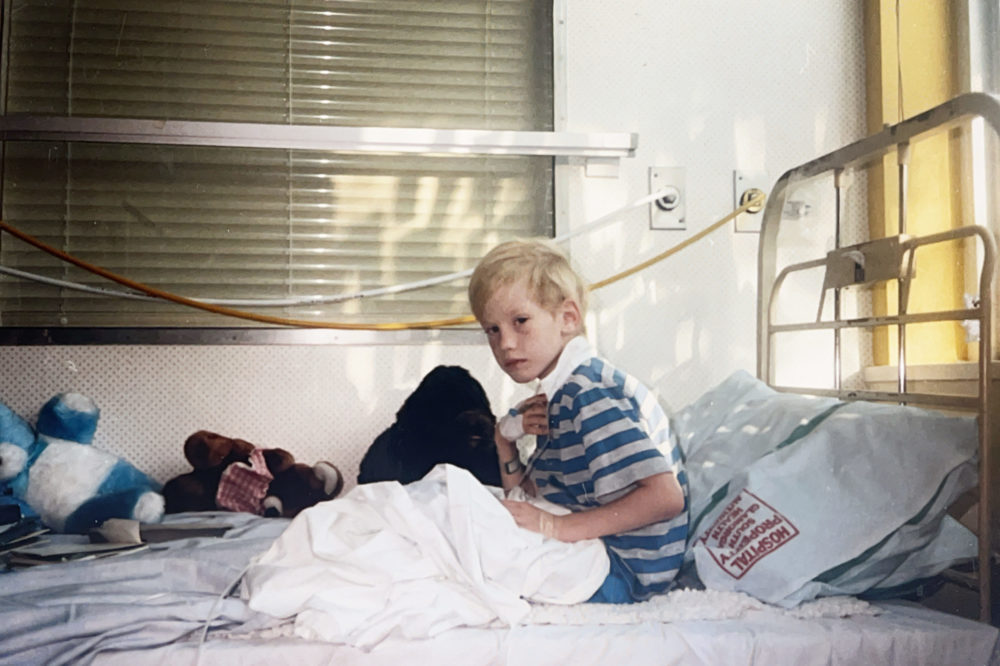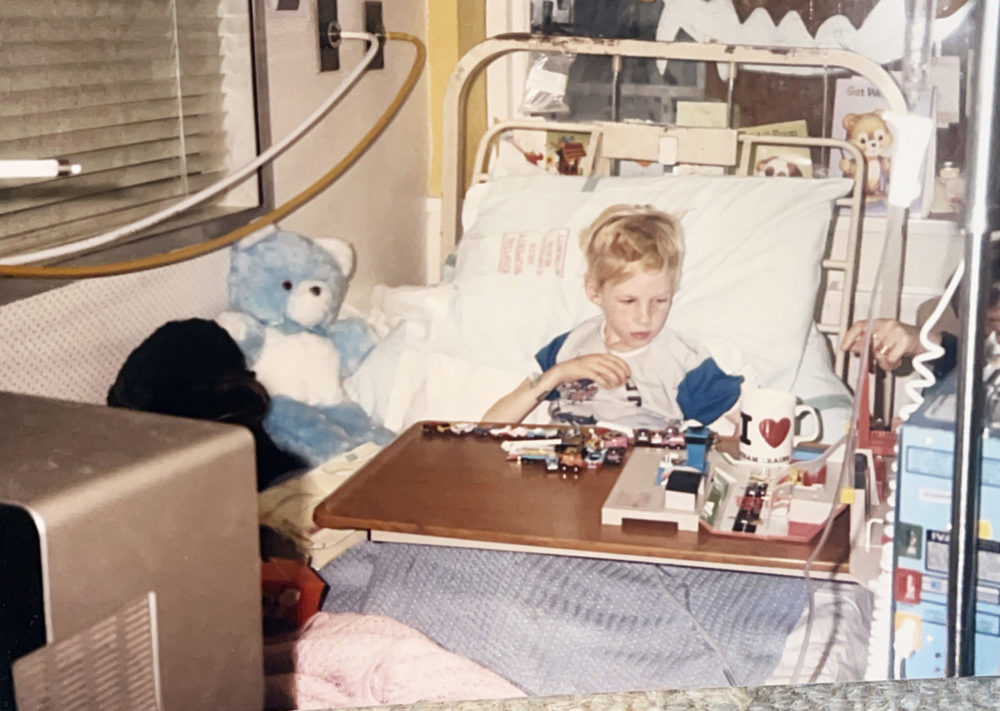10-month-old baby infected with HIV after top doctor ignored own rules

The latest episode of BBC Wales Investigates, broadcasting on BBC One Wales on Monday, has found that a 10-month-old baby was infected with HIV after a top doctor ignored their own rules.
When Colin Smith contracted HIV through contaminated blood, his parents’ house was daubed with ‘Aids dead’ and his father was forced to leave his job, the programme – Blood Money – finds.
Now 34 years on from his death from Aids at the age of seven, his family are facing another injustice.
“Serious risk”
BBC Wales Investigates reporter Wyre Davies has uncovered new evidence that Professor Arthur Bloom, the world-renowned doctor who gave him the infected imported blood product, Factor VIII, broke his own rules to do so.

NHS internal guidelines, written by Prof Bloom’s department, clearly shows that children should not be treated with imported blood because of the serious risk of infection.
“This wasn’t an accident,” said Colin senior, speaking in the programme.
“It could have been avoided.”
“I’m telling you, it was all behind a curtain,” said Colin’s mum, Janet.
“Everything Bloom done was not face-to-face it was behind-the-scenes if you like. What Prof said, what Prof done – we knew nothing about.”
Haemophilia
Colin was born with the bleeding condition haemophilia. He was one of around 3,000 haemophiliacs who died after being infected with HIV and other viruses, like hepatitis, in imported blood products in the ‘70s and ‘80s.

These viruses got into the supply chain when high-risk donors, such as drug addicts and prisoners, in countries like the USA were paid to give blood donations. Those products were then bought by the UK.
Another victim, speaking for the first time on condition of anonymity, has kept his HIV condition a secret for almost 40 years.
He’s convinced Prof Bloom kept his HIV diagnosis from him while his wife was pregnant, and even tried to convince the couple to abort the child.
“They explained to us the situation that I was HIV positive and not to tell anyone – that was the biggest thing that hit me. Don’t tell anyone, we don’t want to frighten people. Keep it to yourselves and there’s nothing to be done. There’s no treatment available for it,” they tell the programme.
“I just hope to God it never happens again.”

“I think it’s our duty to tell this story because of the number of us that are already dead.”
Evidence
BBC Wales Investigates has trawled through hundreds of pages of evidence. These documents show that drugs companies making the blood product Factor VIII, which is used to treat haemophiliacs, were aware of the risks of serious infection from the hepatitis virus as early as the 1970s.
The programme reveals that documents from Immuno AG – a pharmaceutical company which made the Factor VIII product used in the UK – shows senior executives knew products made from USA donors had a higher risk of viral infections, but they said the UK market would accept that risk because it was cheaper.

The programme captures the moment Colin Smith’s parents are shown the document for the first time.
“They weren’t worried about people’s health as far as I’m concerned. You get to a stage when you read things like that, to us it was murder,” said Colin’s mother, Janet.
Another Professor, who was mentored by Bloom and treated patients with infected blood products, told the programme that doctors and companies knew imported blood products carried serious health risks.
Prof Edward Tuddenham said: “If you go on selling a product that you know is potentially deadly just because you made a good profit from it, you’ve obviously rated your profit above the health and actually the life of the people who have been given the product.”
“There was a period when we were exposing patients to clearly horrific risk but we didn’t appreciate them or make the correct calculation of risk- benefit.”
Professor Bloom died in 1992.
UK Government role
The programme also examines the role of the UK Government, as the scandal was emerging, and asks why ministers continued telling the public there was “no conclusive proof” that AIDS could be carried in blood products.
And while victims, and families of victims, wait for compensation, the programme speaks to one woman who has been denied a payout, despite being able to prove she was infected with Hepatitis C through a blood transfusion in 1992 – after a cut-off date previously imposed by the government.

“It’s the recognition,” said Caz Challis. “It’s the not being told you’re not worth it. You don’t count. It’s the justice for the people who have been ignored.”
The infected blood inquiry is due to publish its final report on 20 May.
BBC Wales Investigates: Blood Money will be on BBC One Wales on Monday, April 15 at 8pm. It will also be available to watch on BBC iPlayer from Sunday.
Support our Nation today
For the price of a cup of coffee a month you can help us create an independent, not-for-profit, national news service for the people of Wales, by the people of Wales.







It was known before World War 2 that blood transfusion carried the risk of transmitting infection. There are papers in the BMJ and the American Journal JAMA discussing this as transfusion was considered to treat combat injured soldiers. During WW2 when it was common to reuse needles during immunisation programmes for soldiers the emergence of what became known as Hepatitis B then called Homologous Serum Jaundice was observed. After WW2 standard UK treatment for Haemophilia and certain other blood factor deficiencies was to use a home sourced product called cryoprecipitate which came in thin frozen bags a bit like a… Read more »
That is enlightening, thanks.
I believe it assumed that donating blood for transfusion is an altruistic act so people would comply with requests not to donate when ill. In places like the usa, donors have incentive to hide/lie about being ill because they are paid for their blood, this includes criminals in prison!
Also, according to the NHS Blood and Transplant website, screening of blood for HIV began in 1986 and Hep. C began in 1991. It doesn’t say anything about any other blood borne diseases.
https://www.nhsbt.nhs.uk/who-we-are/a-history-of-donation-transfusion-and-transplantation/